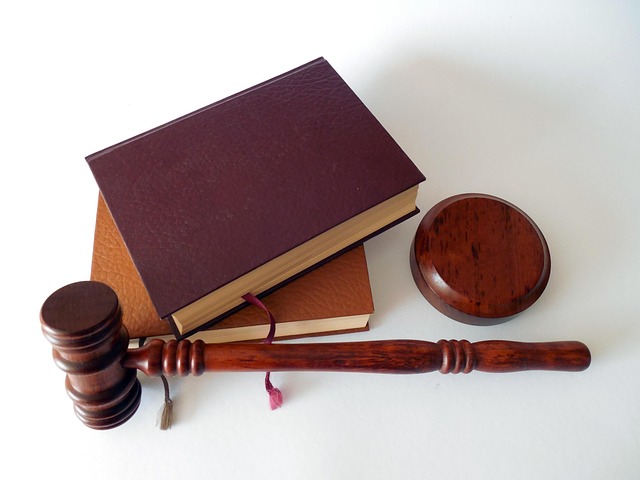Recent criminal law reforms aim for justice and equity by addressing biases, promoting restorative justice, and empowering defendants through procedural safeguards. Understanding rights, common offenses, and evidence rules under criminal law is vital for fair trials and stronger communities.
Dive into the intricate world of criminal law, where justice meets punishment. This comprehensive guide explores the latest reforms shaping legal landscapes, empowering individuals to comprehend their rights within criminal proceedings. From understanding common offenses and their penalties to deciphering the role of evidence in cases, we demystify the complex. Stay informed about crucial developments in criminal law, ensuring you’re equipped with knowledge in today’s legal environment.
- Latest Criminal Law Reforms and Their Impact
- Understanding Rights in Criminal Proceedings
- Common Criminal Offenses and Penalties
- The Role of Evidence in Criminal Cases
Latest Criminal Law Reforms and Their Impact

The realm of criminal law has seen significant reforms in recent years, reflecting a broader societal shift towards more just and equitable justice systems. These updates aim to address historical biases and improve outcomes for all involved, especially those from marginalized communities. Among the notable changes are enhanced procedural safeguards, which strengthen the rights of accused individuals by ensuring due process and access to legal representation.
Additionally, there’s a growing emphasis on restorative justice practices, shifting focus from punitive measures towards rehabilitation and reconciliation. These reforms promise to build stronger, more resilient communities by addressing root causes of criminal behavior. As these changes ripple through the criminal justice system, they hold the potential to foster greater public safety and social harmony, ultimately shaping a more just and fair society for all.
Understanding Rights in Criminal Proceedings

In any criminal proceeding, understanding one’s rights is paramount. Accused individuals must be apprised of their constitutional protections, ensuring a fair and just trial. The right to remain silent, for instance, is a cornerstone, preventing self-incrimination. Legal counsel is another crucial entitlement, enabling defendants to navigate complex legal systems and present robust defenses.
Knowledge of the accusatory process, including the right to a speedy trial, presumption of innocence, and confrontation of witnesses, empowers individuals. These rights, enshrined in criminal law, safeguard against arbitrary justice and promote procedural fairness. Awareness can significantly influence outcomes, giving rise to better-informed decisions and a stronger sense of justice within the legal framework.
Common Criminal Offenses and Penalties

In the realm of criminal law, understanding common offenses and their associated penalties is paramount for both legal professionals and the general public. These crimes range from minor infractions to more serious felonies, each carrying distinct consequences. Among the frequent transgressions are theft and fraud, which involve illegally taking or using another person’s property without their consent. Penalties for these offenses can include restitution, fines, and imprisonment, with lengths varying based on the value and circumstances of the crime.
Another prevalent category is assault and battery, where individuals intentionally cause bodily harm to others. Sentences for these crimes may result in monetary compensation for victims, community service, or even lengthy prison terms if aggravating factors are present. Additionally, vandalism and arson—destruction of property through malicious means—carry severe penalties, often involving restitution, fines, and potential imprisonment to deter such destructive behaviors.
The Role of Evidence in Criminal Cases

In criminal law, evidence plays a pivotal role in shaping the outcome of cases. It serves as the cornerstone upon which prosecutors and defenders build their arguments, aiming to prove or disprove guilt beyond a reasonable doubt. The admissibility of evidence is subject to strict rules designed to ensure fairness and reliability. These guidelines govern how information is collected, handled, and presented in court, covering various forms such as physical objects, documents, eyewitness testimonies, and expert opinions.
The process of gathering and presenting evidence in criminal cases involves intricate procedures. Law enforcement agencies must follow specific protocols to maintain the integrity of evidence from the scene to the courtroom. This includes proper documentation, secure storage, and preservation to prevent tampering or contamination. Once gathered, evidence undergoes thorough examination and analysis by experts who can testify to its authenticity and relevance, thereby aiding judges and juries in reaching informed decisions in accordance with criminal law principles.
In the realm of criminal law, staying informed about recent reforms is key to understanding the evolving justice system. By grasping these changes, individuals can better navigate their rights and responsibilities. From knowing one’s entitlements during proceedings to comprehending common offenses and evidence rules, this knowledge empowers folks to make informed decisions. The dynamic nature of criminal law demands continuous learning, ensuring a fair and just society for all.
